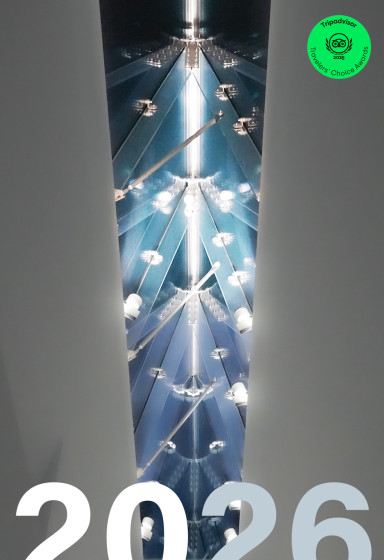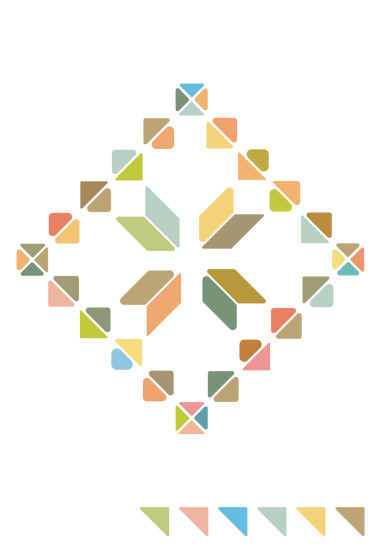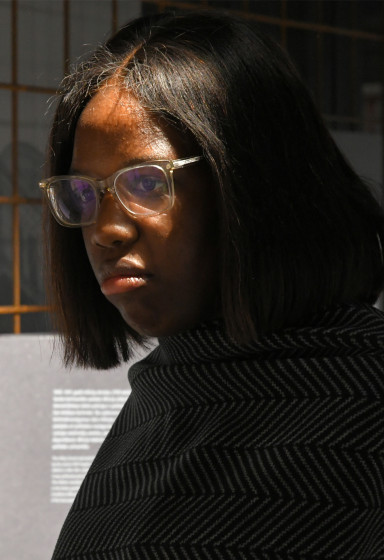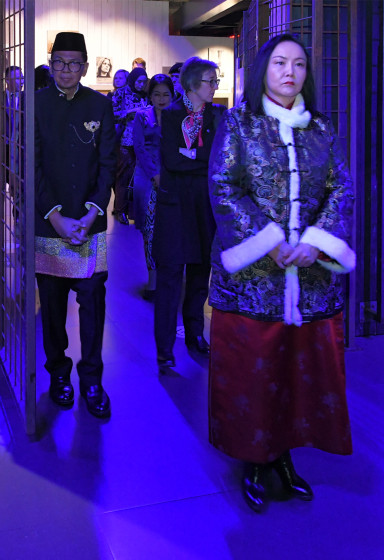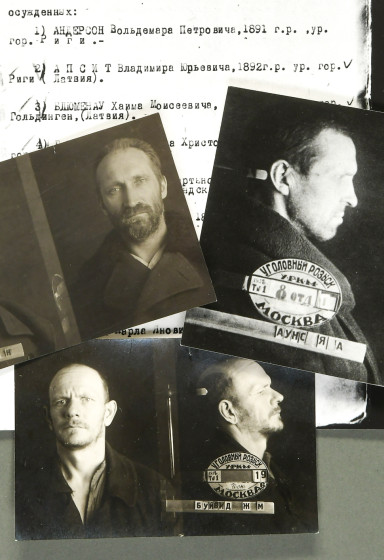Donate to Museum
Each donation helps to ensure the Museum's activities, allowing it to function and provide information for people from all over the world.
The Museum is grateful to each donor and invites everyone to contribute.
A Monument to Latvian Legionnaires and Freedom was Unveiled in Belgium
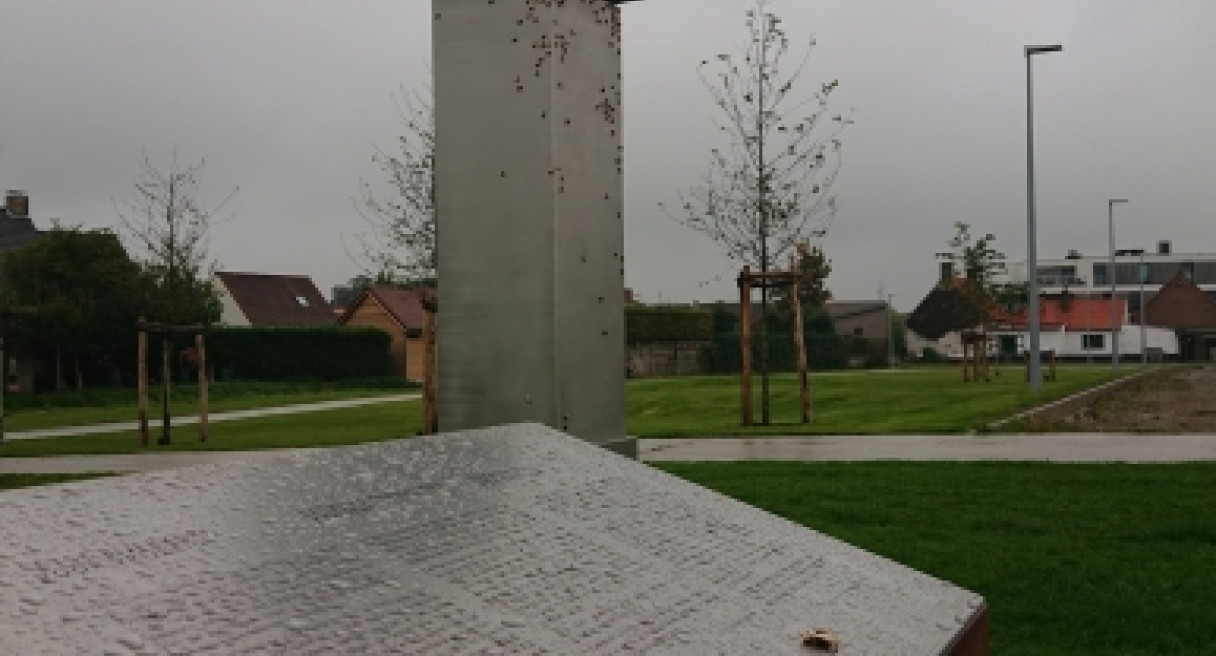
On 23 September 2018, in the Belgian town of Zedelgem, the 'Monument to Freedom' sculpted by Latvian sculptor Kristaps Gulbis was unveiled. The monument is dedicated to the Latvian Legionnaires, who did not lose faith in freedom for the Latvian State, during the winter of 1945 to 1946 when they were held in Zedelgem prisoner of war camp.
This is the first monument for Latvian soldiers built outside of Latvia. It has been erected in the place which had the largest prisoner of war camp for Latvian soldiers. 12,000 Latvian Legionnaires were imprisoned there, where they founded the aid organisation 'Daugavas Vanagi' and created a unique copy of the Freedom Monuent.
The monument was unveiled by the Mayor of Zedelgem Annick Vermeulen, the Ambassador of Latvia to Belgium Ilze Rūse, and Patrick Arnou, the representative for historic heritage in Zedelgem council, and Valters Nollendorfs, Chairman of the Board of the Museum of the Occupation of Latvia (OMB).
Valters Nollendsorfs' speech:
DEDICATING THE MONUMENT "LATVIAN BEEHIVE FOR FREEDOM"
IN ZEDELGEM, BELGIUM, 23 SEPTEMBER 2018
Valters Nollendorfs
I never have been a soldier. Never will be. For me the dedication of this monument, this Latvian Beehive for Freedom in Zedelgem, is an act of deference to those nearly 12,000 of my generation who were Latvian soldiers in a foreign army and who were held captive in the Prisoner of War Camp at Vloethemveld in Zedelgem in the winter of 1945/46.
Only four years separated me from them. The date of one's birth in those years oftentimes determined who went to war and who fought on which side in a wrong war. They and I were among those who were born in the brief first independence of Latvia from 1918 to 1940 but did not enjoy the privilege of growing up and becoming full-fledged members of a free country. They did not even have the honour to defend their country in their own army because the Latvian state was occupied, destroyed and the Latvian nation subjugated by two totalitarian powers – the Soviet Union and Nazi Germany. Latvian men were drafted in the armies of both, depending on which one alternatively was exercising its oppressive military control over the land. They were fighting and dying in a war that was not a Latvian war and mot a war for the freedom of Latvia. And yet Latvia, which was robbed from them, remained topmost in their hearts.
The Vloethemveld POW Camp 2227 was not a well-known place. Historians are not particularly interested in POW camps, especially if it does not touch their own soldiers. For its former inmates it was a place they would rather forget. They were losers on the wrong side subjected to humiliation, deprivation, suffering from uncertainty and depression. How do you prove you are not Nazis and war criminals, that the SS runes on your collars are not of your nation, choosing or conviction, and that your allegiance is owed solely and only to the little patch on your sleeves in Latvian national colours? How do you avoid being delivered to the Soviets who are just then raping your country? When will your country become free? And will you and how and when become free? Freedom in the camp became hope, hope became faith. Confirming their faith, Latvian soldiers in camp 2227 built a replica of Latvia's Freedom Monument. They celebrated Latvia's Independence day on 18 November 1945. They sang the Latvian anthem. They and their faith had to endure many trials before Latvia regained independence only 46 years later.
Uncovering this painful but simultaneously uplifting history is a recent undertaking. We are indebted to Zedelgem historian Pol Denys for his interest in the history of the closed army and prisoner camp, a nearby but easily forgotten secret. We are indebted to him for singling out and gathering an impressive array of materials about the unique story of the Latvian and other Baltic soldiers in the camp. And we are indebted to our own historian and documental filmmaker Andrejs Edvīns Feldmanis for discovering Pol Denys during his research on a filming expedition in Zedelgem in 2014, for making a documentary film about the camp and for his own research project on Latvian soldiers in the camp.
One of the prisoners in the camp was my late friend Bruno Rubess. One of his daughters, Baiba, is now here. His other daughter Baņuta is now in Toronto reconstructing the untold story of her father's camp experience. He was 17 when he was drafted. He became 19 years old in the camp. He went on, largely self-taught, to become an internationally recognized business manager and leader. We became life-long friends through Latvian Boy Scouts and shared our good deeds for Latvia and faith Latvia's freedom. Another prisoner I want to recall is his commander, Colonel Vilis Janums, who, disobeying orders, chose not to sacrifice his sons, as he called them, on Hitler's Nazi state funeral pyre in Berlin or falling into Soviet captivity in late April 1945, decided to take them westward to surrender to the advancing American Army. He became the first chairman of the welfare society Daugavas Vanagi, whose representatives are present at this event.
This historical and memory work brings us to the present and to the serious task of illuminating the past for the present. We are thankful to the municipality of Zedelgem for its initiative to dedicate this new square, on which we stand, to freedom: Brivibaplein. Even more – for the initiative and financial participation to erect this monument, cast in bronze, which we are dedicating now. We are thankful for the cooperation, friendship and solidarity throughout its implementation. And we are happy that Vloethemveld will soon regain its freedom again as a nature preserve.
Zedelgem and Flanders are no strangers to occupation and the violence, destruction and suffering of war. We hope: the Latvian bees we are bringing to Zedelgem in memory of our soldiers, will be welcomed by Flanders poppies made famous by the Canadian poet John McCrae during the deadly World War I in Flanders:
In Flanders fields the poppies blow
Between the crosses, row on row,
That mark our place; and in the sky
The larks, still bravely singing, fly
Scarce heard amid the guns below.
We hope the Latvian bees even better than larks, will soothe the painful memories, pointing to reconciliation, peace, friendship and a better world than that we experienced during occupations, foreign oppression and wars.
As we dedicate the "Latvian Beehive for Freedom" as we celebrate Latvia's 100th anniversary, let us remember the Latvian anthem that our captive soldiers sang in captivity and that we now sing since 1991 in a free country again. The Latvian anthem, created in the 19th century when there was no Latvian state, is a very simple prayer. It asks God's blessing for Latvia and its people to live happily in the land whose sons are singing and whose daughters are blossoming. Nothing more, nor less – just to pursue God-given happiness, as Thomas Jefferson put it in the American Declaration of Independence, to pursue happiness in one's own free country. May the humming Latvian bees find happiness among the friendly Flanders poppies as they do among the blossoming Latvian linden trees. That is friendship and happiness across borders and ages.
Dievs, svētī Latviju!
God, zegene Vlaanderen!
God bless us all in peace, in friendship, in freedom!
Zedelgem historian, Pol Denys', speech:
Burgemeester, Schepenen en iedereen begaan met het kunstwerk ‘Letse Bijenkorf’ op het Brivibaplein. Dear delegations from the Museum of the Occupation of Latvia and the Daugavas Vanagi, Kristaps Gulbis, dear friends from Latvia. Welcome to Zedelgem.
Finally, tomorrow is the unveiling of Kristaps Gulbis work of art, the classic ‘Latvian Beehive’ on Brivibaplein - Freedomsquare. Tomorrow all speeches will underline the good relationship between the Museum and the city of Zedelgem and everyone will be able to enjoy the wonderful artwork, the Latvijas stāvstrops. So, I don’t want to interfere too much into speeches of tomorrow but say a few words about the cause that Zedelgem connects with Latvia and I want to do this, based on two words.
Read more...
